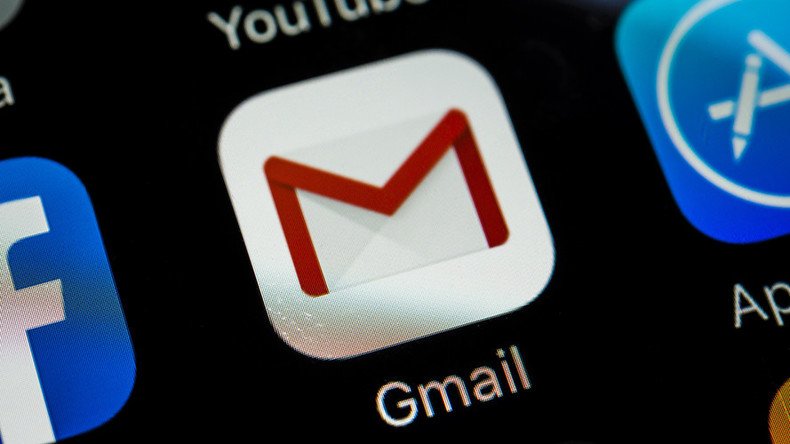Google must comply with FBI data request to hand over overseas emails – US judge

An American judge has ruled that Google must provide emails stored overseas to US authorities for domestic investigation, despite an earlier decision finding no such obligation for Microsoft.
On Friday, US Magistrate Judge Thomas Rueter ruled in Philadelphia that transferring emails from a foreign server so the Federal Bureau of Investigation (FBI) can read them as a part of a domestic fraud probe is legally sound.
He noted that the emails, which are routinely stored overseas by Google, would only be read in the United States, causing "no meaningful interference."
“Google regularly transfers user data from one data center to another without the customer's knowledge,” said Magistrate Judge Thomas Rueter, as quoted in The Register.
“Such transfers do not interfere with the customer’s access or possessory interest in the user data. Even if the transfer interferes with the account owner's control over his information, this interference is de minimis [minimal] and temporary.”
Judge Rueter’s decision comes seven months after the US Circuit Court of Appeals in New York found that Microsoft did not have to show foreign emails to American authorities unless investigators go through local privacy laws first, a verdict that was upheld on January 24.
The decision was welcomed by privacy advocates, the American Civil Liberties Union and the US Chamber of Commerce. In both cases, authorities sought the emails under the Stored Communications Act from 1986, which addresses disclosure of electronic records held by third party internet providers.
The ruling by Judge Rueter has been questioned by some legal experts.
“The court suggests that bringing a file back to the United States is not a seizure because Google moves data around all the time and ‘this interference is de minimis and temporary’,” Professor Orin Kerr wrote in the Washington Post.
“I don't think that works. Google is a private company not regulated by the Fourth Amendment, so whether it moves around data is irrelevant. And I don't see what is 'de minimis and temporary' about the government ordering Google to make a copy of your email pursuant to a court order.”
For its part, Google, which receives over 25,000 annual requests for user data from US authorities, plans to appeal the decision.
"The magistrate in this case departed from precedent, and we plan to appeal the decision,” the company said in its statement, as quoted by Reuters.
Companies such as Google, Facebook and Yahoo have come under increased public pressure to do more to ensure their users’ privacy in recent years, particularly in the wake of revelations about mass surveillance by the NSA (National Security Agency) revealed during Barack Obama’s presidency.














